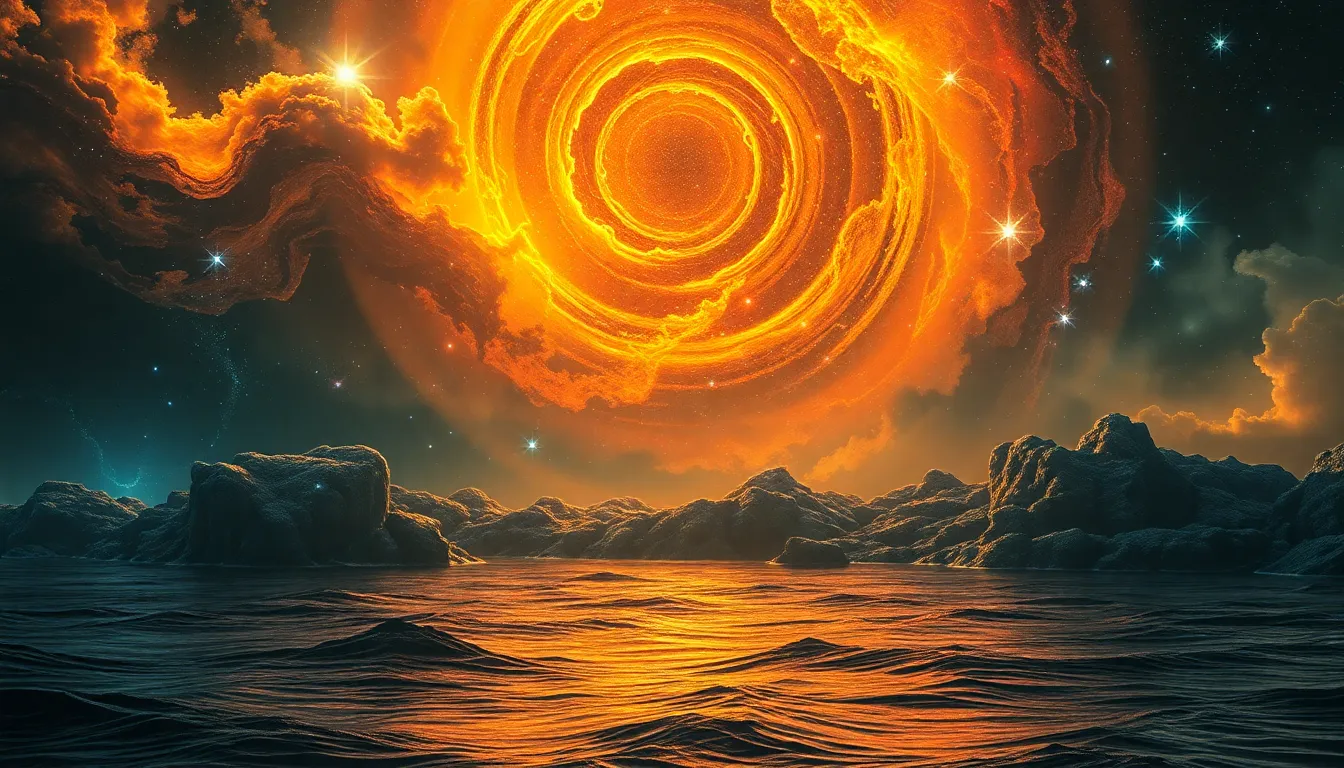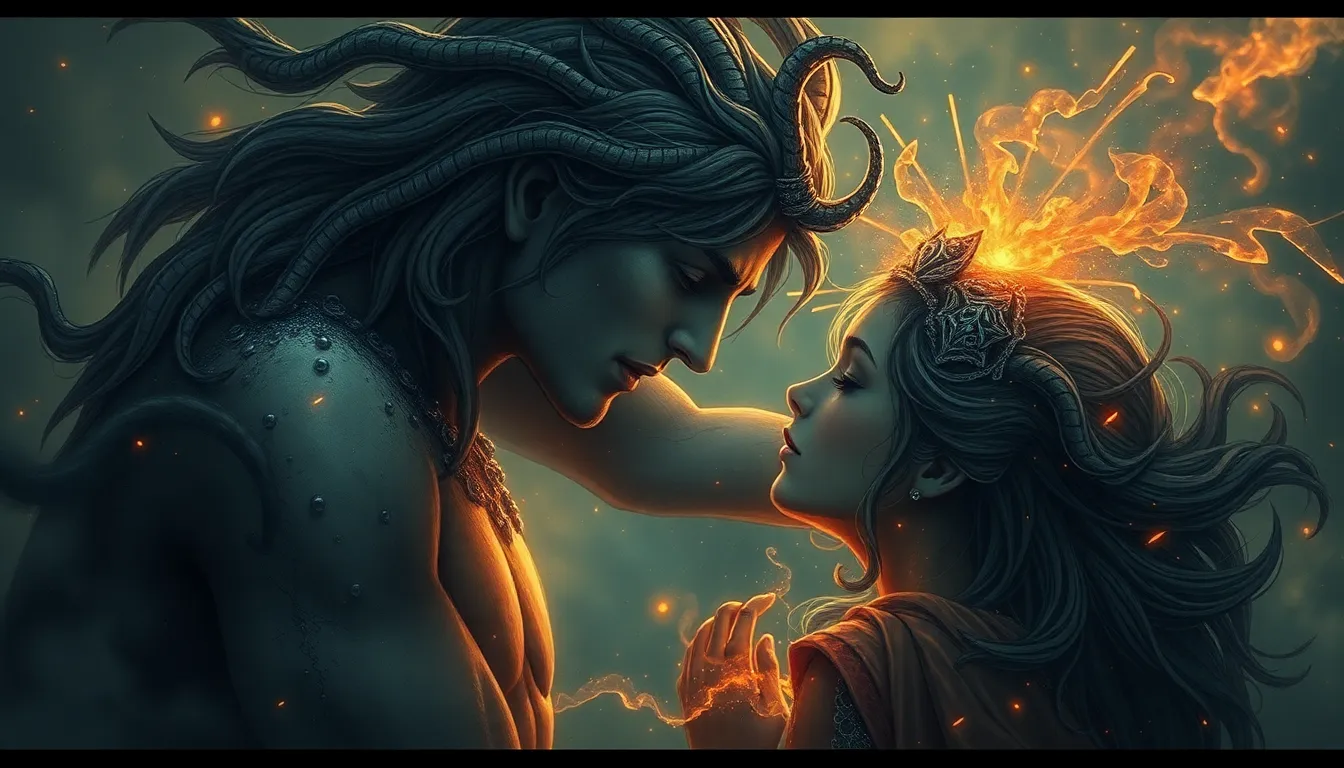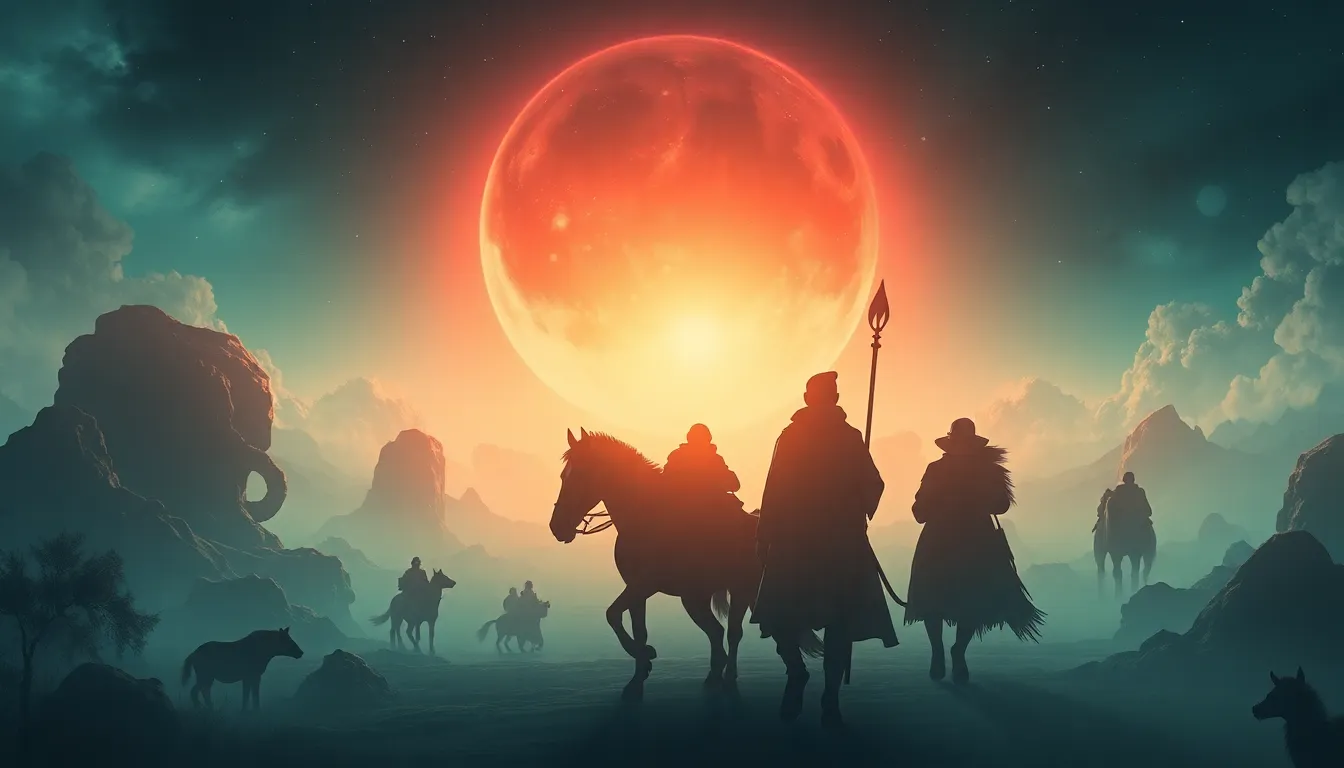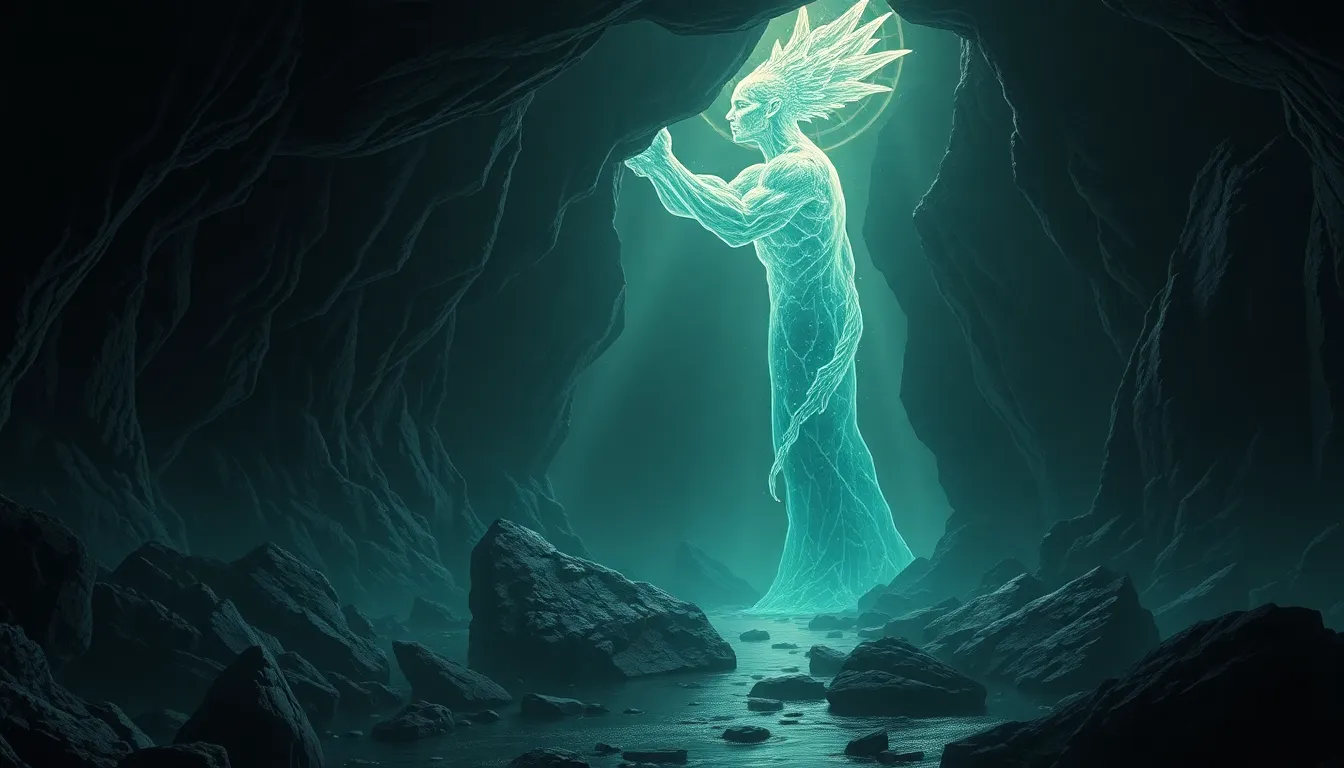The Cosmic Tides: How Creation Myths Reflect Change
Introduction: The Significance of Creation Myths
Creation myths serve as foundational narratives in cultures around the world, offering explanations for the origins of the universe, humanity, and the natural order. These stories are more than mere tales; they encapsulate the values, beliefs, and historical contexts of the societies that tell them. Creation myths often address fundamental questions about existence, purpose, and the relationship between humanity and the cosmos.
As societies evolve, so too do their creation myths. They reflect not only the beliefs of a people but also their responses to change, adversity, and transformation. By examining these myths, we can gain insight into how different cultures perceive change and stability, as well as their aspirations for the future.
Understanding Cosmic Tides: A Metaphor for Change
The concept of cosmic tides serves as a powerful metaphor for the ebb and flow of cultural shifts. Just as the ocean’s tides are influenced by the gravitational pull of the moon and sun, human narratives and beliefs are shaped by the forces of nature, history, and social dynamics. These cycles of change are inherent in the human experience, prompting societies to adapt and evolve.
Natural phenomena—such as seasons, lunar cycles, and celestial events—often find their way into creation myths. This relationship underscores a fundamental truth: humans are part of a larger cosmos, and our stories are intertwined with the rhythms of the universe. The acknowledgment of these cosmic tides can provide a framework for understanding the constant state of flux that characterizes life.
The Role of Creation Myths in Shaping Worldviews
Creation myths contain key elements that establish a framework for understanding existence and change. These may include:
- Origins: How the universe and life began.
- Deities: The roles of gods and supernatural beings in creation.
- Chaos and Order: The balance between disorder and harmony.
- Humanity’s Place: The significance of humans within the cosmos.
Through these narratives, cultures articulate their understanding of the world. Creation myths provide the metaphysical underpinnings for societal norms, ethical principles, and the collective identity of a people. As societies face new challenges and transformations, the reinterpretation of these myths can offer guidance and insight into navigating change.
Case Study 1: The Mesopotamian Creation Myths
The Enuma Elish, one of the most significant creation myths from ancient Mesopotamia, presents a narrative of chaos giving way to order. In this epic, the god Marduk defeats the primordial sea goddess Tiamat, symbolizing the triumph of civilization over chaos. This myth reflects the societal changes of ancient Mesopotamia, where the establishment of order was paramount for the flourishing of city-states.
The themes portrayed in the Enuma Elish resonate with the historical context of Mesopotamian civilization, characterized by the struggle for power, the importance of agriculture, and the rise of complex social structures. The myth not only explains the origins of the cosmos but also reinforces the values of order, hierarchy, and the divine right of kings.
Case Study 2: Indigenous Creation Stories and Environmental Change
Indigenous creation stories often emphasize the interconnectedness of humanity with the land and natural world. These narratives embody ecological wisdom and reflect the profound respect that Indigenous cultures hold for nature. Many Indigenous myths illustrate the importance of balance, sustainability, and stewardship of the Earth.
For instance, the creation stories of Native American tribes frequently feature animals and natural elements as central characters, highlighting their roles in the creation and maintenance of life. These myths also respond to environmental changes, providing insights into how communities adapt to shifts in their ecosystems.
The Influence of Ancient Greek Myths on Modern Thought
Ancient Greek creation myths, such as those found in Hesiod’s Theogony, explore the origins of the gods and the universe. These narratives not only shaped Greek religion but also influenced Western philosophical thought. The transition from mythological explanations of the world to rational and scientific inquiries marked a significant cultural shift.
Greek myths reflect philosophical changes from ancient to modern times, illustrating humanity’s evolving understanding of existence. The stories of gods and their interactions with humans serve as allegories for human experiences, struggles, and moral dilemmas, providing rich material for contemplation and reflection.
Comparative Analysis: Eastern vs. Western Creation Myths
When comparing Eastern and Western creation myths, notable differences and similarities emerge. Eastern traditions, such as Hindu and Taoist myths, often emphasize cyclical concepts of time and the interconnectedness of all beings. In contrast, Judeo-Christian creation myths typically present a linear narrative of creation, fall, and redemption.
This comparative analysis illuminates cultural attitudes towards change and stability. Eastern myths may encourage acceptance of change as a natural part of existence, while Western myths often depict change as a challenge to be overcome. Both perspectives offer valuable insights into how different cultures navigate the complexities of life.
The Evolution of Creation Myths in the Age of Science
In the modern era, scientific discoveries challenge traditional creation myths, prompting new narratives that integrate empirical understanding with spiritual beliefs. The Big Bang theory and evolution present alternative explanations for the origins of the universe and life, leading to a reevaluation of older myths.
As a result, contemporary creation myths often blend scientific insights with traditional narratives, creating a tapestry of stories that resonate with both ancient wisdom and modern knowledge. This evolution reflects humanity’s ongoing quest to understand our place in the cosmos.
The Future of Creation Myths in a Changing World
As contemporary issues arise—such as climate change, technological advancement, and social upheaval—new creation myths may emerge to reflect these challenges. These myths could serve as guiding narratives that inspire collective action and foster resilience in the face of adversity.
The potential for myths to evolve alongside human consciousness is significant. By embracing new stories that address current realities, cultures can create a shared sense of purpose and hope for the future. This adaptability demonstrates the enduring relevance of creation myths as tools for navigating change.
Conclusion: Embracing Change Through Mythology
Creation myths are more than ancient tales; they are vital narratives that help us understand change and our place within the universe. By examining these stories, we can recognize the values and beliefs that shape our societies and guide our responses to transformation.
As we navigate a rapidly changing world, it is essential to honor the stories that connect us to our past and inspire our future. Embracing these myths allows us to find meaning in change and fosters a deeper understanding of the cosmic tides that influence our existence.




